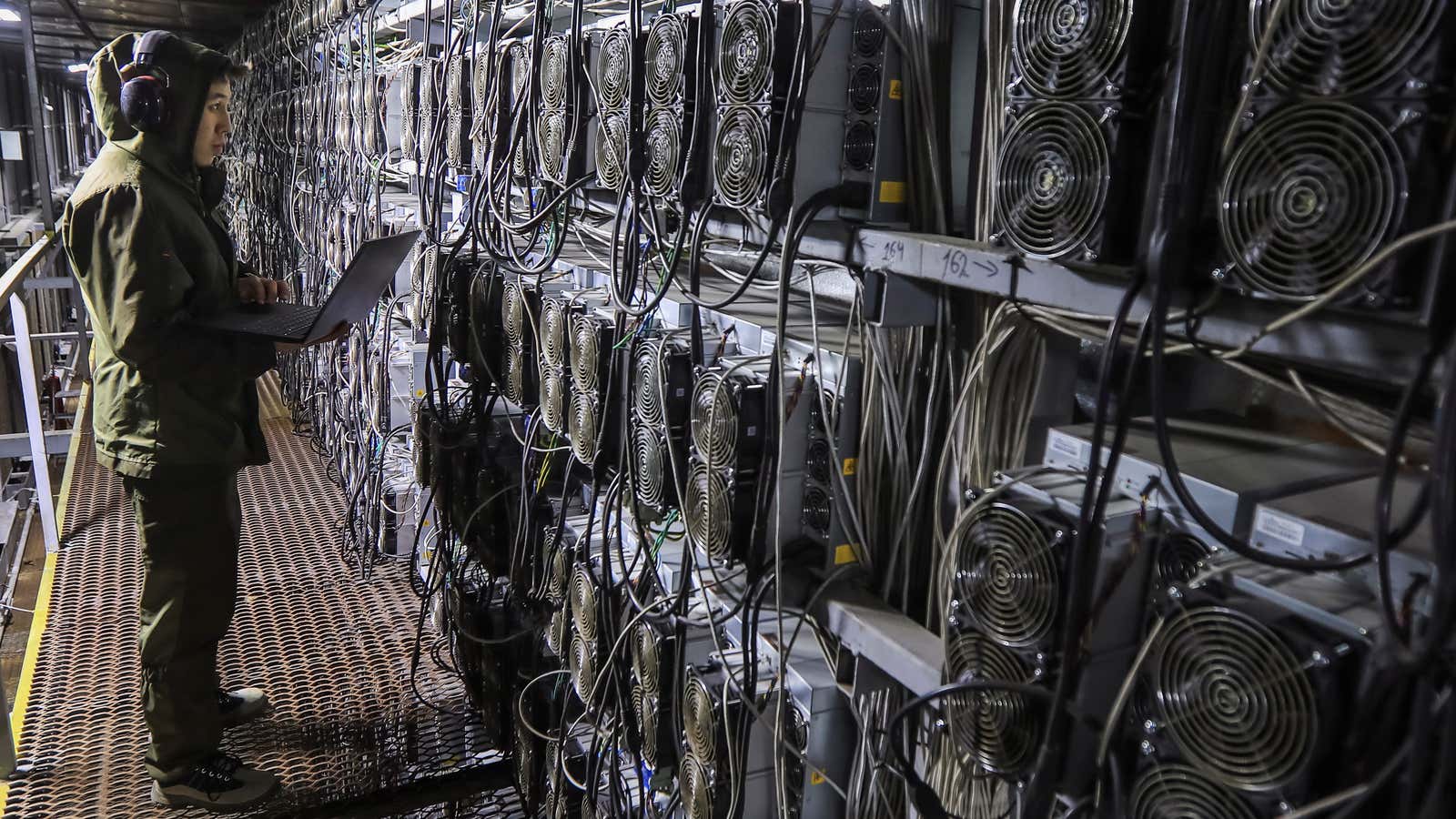As the price of bitcoin craters, the global computer network that supports it is guzzling less energy for the first time in years.
As a general rule, the price of bitcoin and the energy consumed by the computers that mine it move in tandem: The higher the price, the more miners work to mine bitcoin. The correlation is imperfect, however, because of discrepancies in the energy efficiency of mining computers in different parts of the world, and because of local discrepancies in the price of energy (i.e., the price at which bitcoin becomes profitable relative to energy costs).
When the price of bitcoin soared over the last two years, energy consumption rose and then plateaued, as many miners found the price high enough to justify mining but not high enough to justify new investments in mining hardware. But the latest crash—the price has fallen by half since May 1, to about $20,800 per bitcoin—seems to have crossed a critical threshold. Energy consumption is falling for the first time since the beginning of the pandemic, according to an estimate by Alex de Vries, a Dutch economist who studies cryptocurrency energy trends.
The dirtiest bitcoin mining operations are the first to shut down
Much of the fall-off in energy use can be traced to Kazakhstan, de Vries said, where margins were already thinner than the US or other major mining hubs because of the unreliability of the electric grid and because miners there tend to have older, less efficient equipment.
“Their margins blew up, and they’re the ones taking the hit,” de Vries said.
That’s a good thing for greenhouse gas emissions, since most of Kazakhstan’s electricity comes from coal. Overall, average annual emissions from bitcoin mining are about equal to total emissions from Greece.
The threshold bitcoin price below which energy use drops off in Kazakhstan seems to be about $25,000, de Vries said. Overall energy use could decline even more steeply if the price falls to around $10,000, which he estimates as the minimum viable price for US miners, who use the newest, most energy-efficient equipment.
Or, of course, if the bitcoin market recovers, energy use could go right back up.
